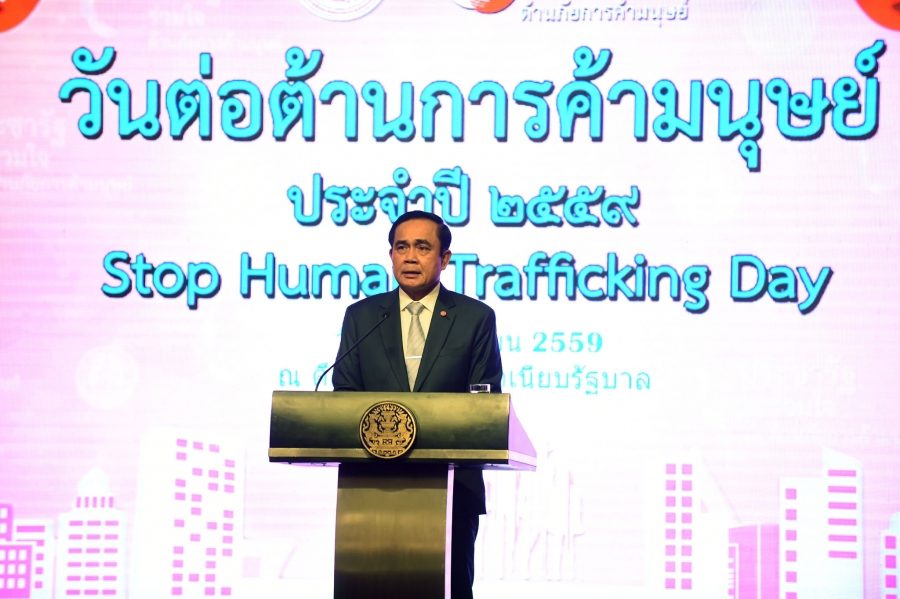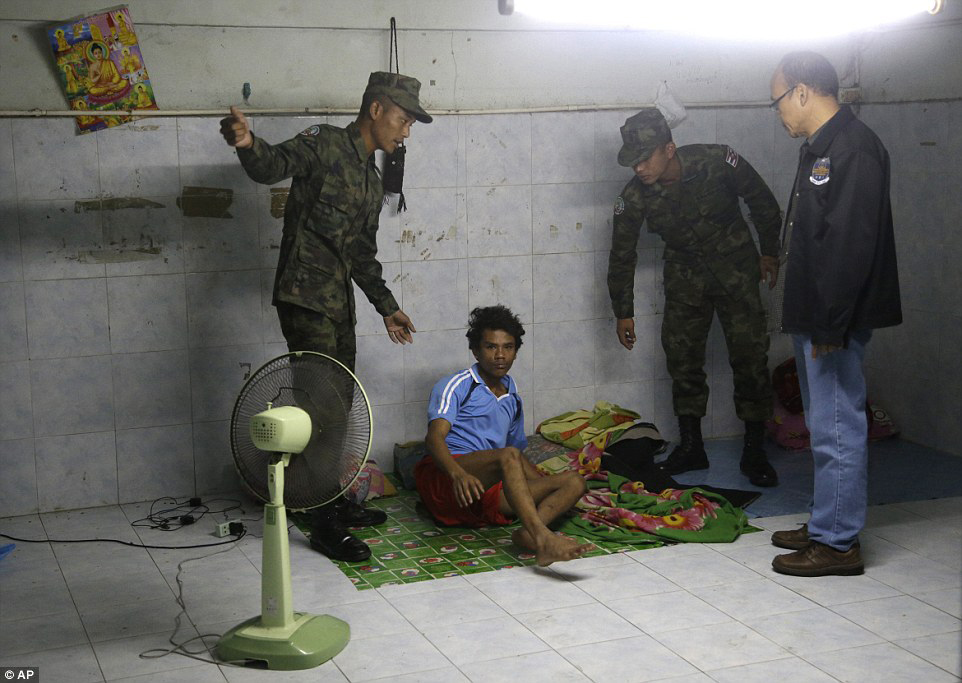Slavery in the seafood industry is just one part of a broader problem. And here’s how it can be addressed.
On 6 June Thailand’s Prime Minister General Prayuth Chan-ocha gave a 35-minute speech commemorating the annual Stop Human Trafficking Day in Bangkok. He was also shown on state media donating 3,000 Baht to the Labour Rights Promotion Network (LPN), a non-governmental organisation well-known for rescuing trafficked victims.
While the PM appeared to forget the date and name of the event during the speech, there is no doubt that human trafficking is high on the government’s agenda, despite other pressing issues such as national reconciliation and August’s referendum on the constitution.
Thailand’s renewed interest in human trafficking has come at the height of international criticism. The ruling junta has tremendously intensified its efforts in combating human trafficking but it has only done so in a few sectors, namely seafood industries.
Thailand is the third largest seafood exporter in the world. It makes sense that the government would want to focus its resources on cleaning up the industry. Thailand should be commended for its attempt. This however should not come at the cost of other groups of migrant workers.
Ever since the major exposés by international media like The Guardian and Associated Press, which linked Thailand’s seafood exports to slave labour and big retailers in the United States and Europe, the government has actively worked to improve the image of what Human Rights Watch calls, “Made in Thailand” brands.
Thailand also went through “a moment of shame” at the latest Universal Period Review (UPR), a cyclical review of human rights practice in 193 United Nations member states, and where the international community made sure migrant worker rights were firmly on the agenda.
Since 2014, Thailand has ranked in the lowest Tier 3 in the US Trafficking in Person (TIP) report for not making “significant effort” to combat human trafficking. The report recognises Thailand as “a source, destination, and transit country for men, women, and children subjected to forced labour and sex trafficking.” The subsequent penalty is the cutting of the US non-humanitarian, non-trade assistance with Tier 3 countries.
In 2015, the European Union (EU) also decided to issue a ‘yellow card’, giving Thailand six months to clean up its illegal, unreported and unregulated (IUU) fishing or otherwise face harsh trade sanctions against its seafood exports in the European market. This May, the EU gave Thailand another six months to solve the problem.
Thailand took another blow from the US after President Obama signed a new bill to stop slave-made imports from entering the US earlier this year.
With a heavy storm of international criticism, the ruling junta declared human trafficking a “national agenda” in 2015. The once unfamiliar scene of military men raiding workplaces is now a regular routine.
The government adopted a “Zero Tolerance” policy on human trafficking and increased its expenditure to combat it by 69.33 per cent. Prayuth even mentioned that Section 44 of the Interim Charter, which gives him absolute power, has been put to a “beneficial” use.
Although Thailand pledged to end human trafficking in all sectors, recent legal amendments, ministerial regulations and international treaty ratifications (like the ILO Maritime Labour Convention) demonstrate that Thailand’s effort selectively targets migrant workers in the seafood industries.
Thailand can make its domestic commitment a more genuine one by coming up with a comprehensive policy protecting all migrant workers.
Those employed in other sectors are also doing it tough.
For example, domestic workers, also among the most vulnerable group of migrants, are still excluded from the Labour Protection Act. They work in secluded and private homes without the guarantee of a minimum wage, specified hours of work and overtime pay.
Thailand can further make its commitment a regional one. PM Prayuth has repeatedly called for cooperation among the Association of Southeast Asian Nations (ASEAN) members.
Thailand can ratify the ASEAN convention on human trafficking – after all, as a Thai government official once told me, Thailand pushed for it so hard that “its body is bent” (dtua gohng). It can also help the Philippines and Indonesia push for a legally binding ASEAN instrument on the protection of migrant worker rights which has been on the negotiation table for almost a decade.
A call on ASEAN is the right way forward, as human trafficking can only be dealt with comprehensively when source, destination and transit countries work together.
This year’s TIP report will be released soon. If the PM really wishes to convey his serious commitment, the government must deal with the issue holistically and regionally. It needs to match words with deeds, as urged by the government itself a year ago.
Ruji Auethavornpipat is a PhD candidate in the Department of International Relations, ANU Coral Bell School of Asia Pacific Affairs.
 Facebook
Facebook  Twitter
Twitter  Soundcloud
Soundcloud  Youtube
Youtube  Rss
Rss 
